Do Basements Need Air Conditioning? (Pros, Cons, Options for Cooling)
Wondering if your basement needs air conditioning?
There are a lot of unfinished basements out there, as well as basements built in houses up north where the temperature can stay quite chilly, even in the summer. Whether you are looking to finish up your basement and make it more comfortable for living or simply want an easier cooling solution that doesn’t involve fans and windows, let’s figure out the best approach.
A basement needs air conditioning if you need to maintain a consistent temperature throughout the year, you need living spaces to be more comfortable in the summer, or you need to better condition the air to reduce humidity, mold, and mildew issues. Adding air conditioning to a basement can be accomplished by upgrading an existing HVAC system, adding a ductless mini-split, or installing a heat pump.
While there are several DIY options that you can probably tackle, it is worth mentioning that a project like this should definitely involve an HVAC professional if you intend to update or replace an existing forced air system or need to install extensive ductwork.
With that said, we’ll cover all of the basics here to point you in the right direction in your journey!
Do Basements Need Air Conditioning?
Basements often have unique heating and cooling needs compared to the rest of your home since they are usually below grade. As a result of being essentially underground, basements often struggle with excess humidity, poor ventilation, and cold temperatures.
So, does your basement need air conditioning?
Consider the following factors:
- Climate: If you live in an area with hot summers, cooling the basement can help maintain a comfortable and consistent temperature throughout the home.
- Usage: Think about how you plan to use the basement. If it functions as a living space, installing air conditioning can improve comfort and air quality. However, if you primarily use the space for storage, a temperature-controlled environment may be less important.
- Humidity and mold issues: High humidity levels in basements can lead to mold and mildew growth, causing unpleasant odors and potential health risks. Air conditioning can help address these issues by regulating humidity and providing better air filtration.
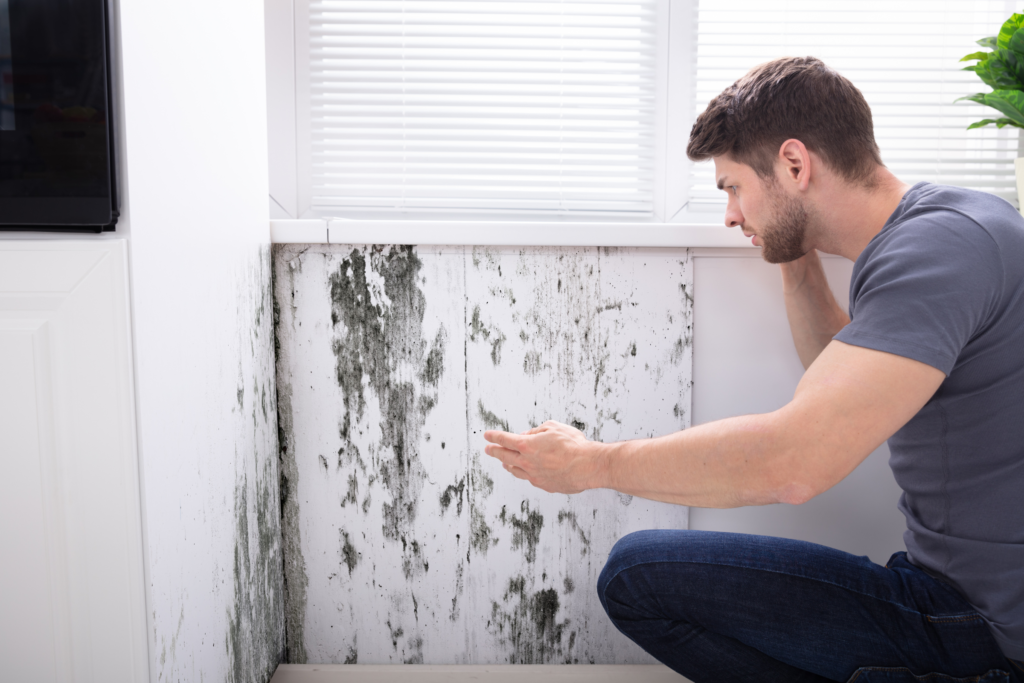
If adding an air conditioning system to the basement seems necessary, some alternatives can help maintain a comfortable environment:
- Fans: Using fans to circulate air can help cool your basement to some extent. While they may not have the same cooling power as an AC unit, fans can contribute to a more comfortable environment without the cost of installation and upkeep.
- Dehumidifiers: Basements often suffer from high humidity levels that make the space feel stuffy and damp. Dehumidifiers work to remove excess moisture from the air, reduce odors, and help prevent mold and mildew growth.
- Portable AC units: If your basement requires cooling only during certain times of the year, a portable air conditioning unit may be a more cost-effective and flexible solution. We’ll talk more about these later!
As you evaluate your basement’s needs, consider your climate, usage, and potential humidity issues. By properly addressing these factors, you can create a comfortable and healthy living space for you and your family.
Basement Heating and Cooling Options
As you consider heating and cooling options for your basement, it’s essential to explore different systems to find the best fit.
Here, we’ll discuss:
- Forced air systems
- Ductless mini-split systems
- Heat pumps
- Portable air conditioners
Forced Air Systems
A popular option for basement heating and cooling is to extend or upgrade your existing HVAC system. If you have a relatively new furnace, you may not wish to upgrade. Instead, you can consider extending the ductwork to serve the basement and integrate it with your main system. Some key points to consider when using forced air systems in your basement:
- Check if your current furnace has enough capacity to handle the additional load (often based on square footage)
- Properly seal and insulate ducts to avoid air leaks and maintain efficiency
- Ensure vents are correctly placed to provide even temperature distribution
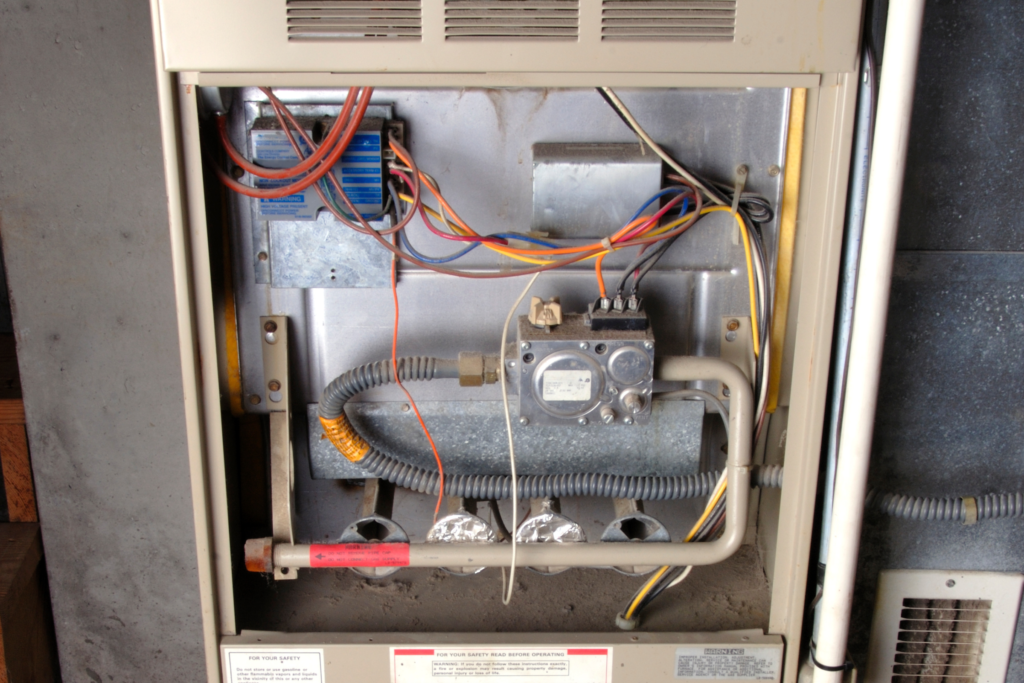
Ductless Mini-Split Systems
Ductless mini-split systems are an excellent alternative for controlling your basement’s temperature and humidity. They are easy to install, space-efficient, and offer zoned climate control.
Some advantages of choosing a ductless mini-split system include:
- No ductwork is required, reducing installation time and costs
- Independent temperature control for the basement and other zones in the house
- Often very energy-efficient compared to forced-air HVAC systems
- If you don’t need it, just turn it off!
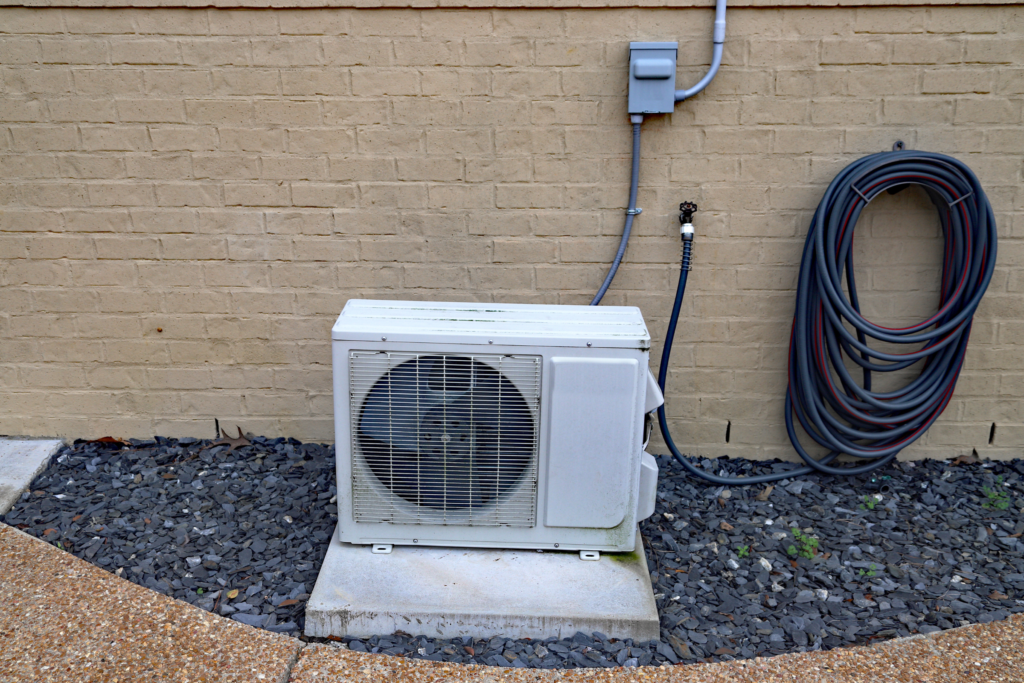
Heat Pumps
Heat pumps are another versatile option for basement temperature control, as they can both heat and cool depending on the season. There are various types, including air-source and ground-source (geothermal) heat pumps.
Here are the biggest potential benefits of heat pumps:
- They can provide both heating and cooling, eliminating the need for separate systems
- Energy-efficient, potentially leading to reduced energy consumption and lower utility bills
- Environmentally friendly, as they transfer heat instead of generating it like furnaces
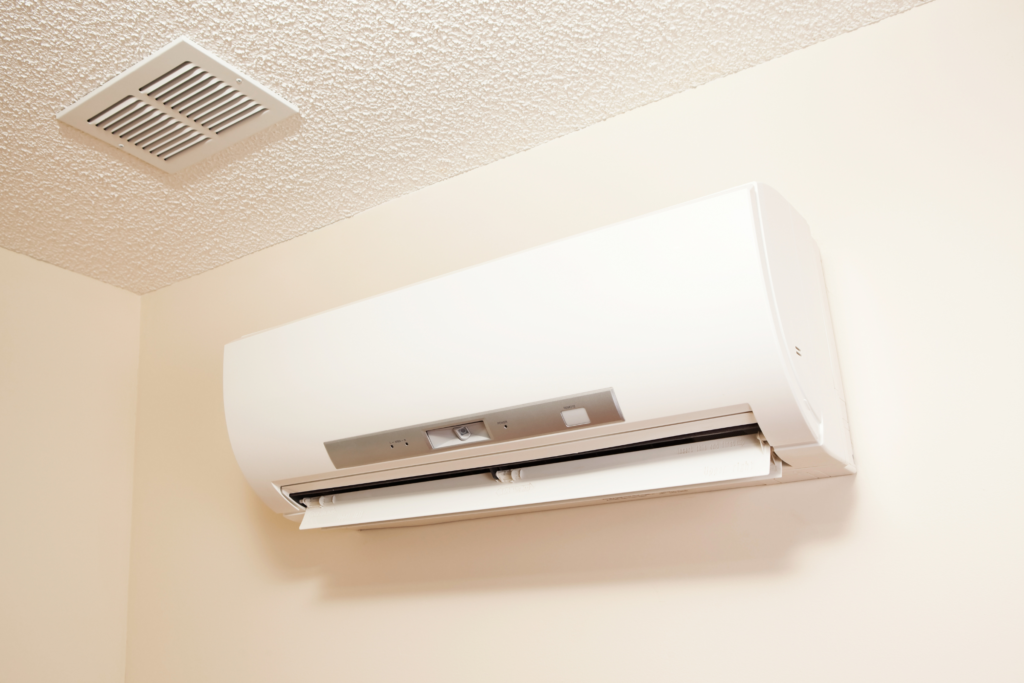
Portable air conditioner
I mentioned the portable air conditioner earlier and, honestly, this is probably one of the best options to consider to cool your basement. This is especially true if you have a relatively small basement area, have no ventilation, or only need to cool it for part of the year.
Portable air conditioners, particularly the self-evaporating models, can be used almost anywhere that you have access to a wall outlet.
But, there are three important things to consider:
- Size – Choose a unit appropriate for the size of your basement. When researching portable air conditioners, they will usually include a maximum square footage capability. Keep in mind that irregular spaces with doors and hallways will drastically reduce the effectiveness.
- Ventilation – A self-evaporating portable air conditioner probably won’t have ventilation requirements but some do. If you need ventilation, you will have to find a way to get the exhaust air outside.
- Humidity – portable air conditioners don’t do a great job of reducing humidity in the air, particularly the self-evaporating models, because they will literally just recycle humidity as they cool themselves.
Importance of ventilation and indoor air quality
While most people understand the idea behind air conditioning and climate control, many people don’t understand the critical importance of ventilation and indoor quality.
Ventilation, the process of exchanging indoor air with outdoor air, is vital in maintaining a comfortable and safe living environment by mitigating harmful pollutants, controlling moisture, and maintaining a balanced temperature.
Indoor air quality (IAQ), on the other hand, refers to the overall condition of the air within enclosed spaces and directly impacts the occupants’ health, comfort, and well-being.
Let’s look at some of these ideas in more detail.
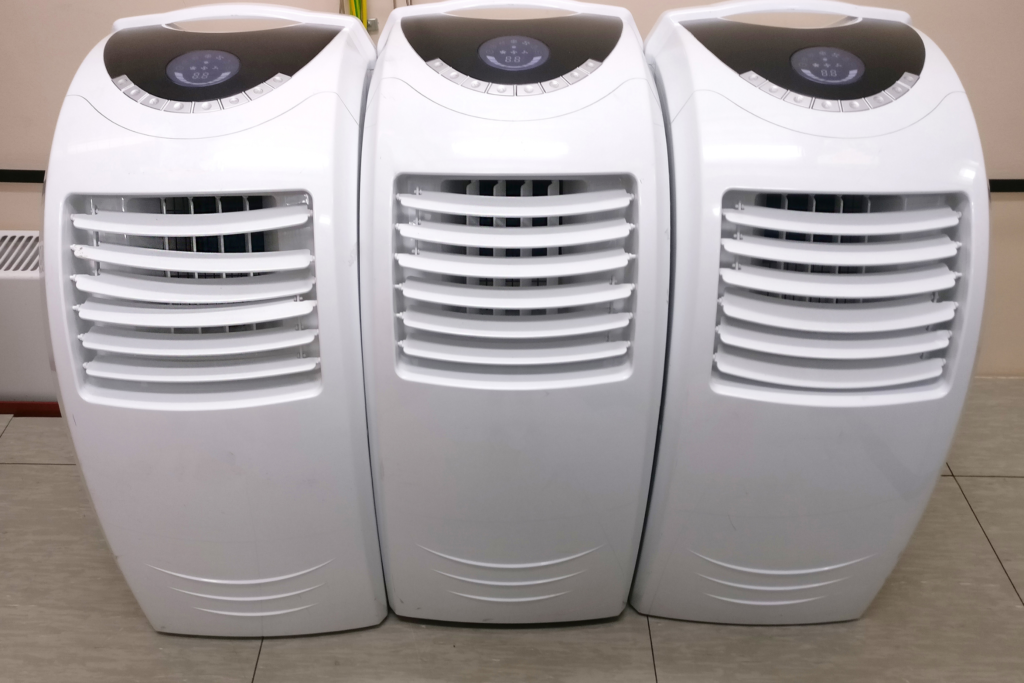
Addressing Moisture Problems
Basements can be notorious for moisture issues. To combat this, you need to ensure that your basement is properly ventilated to maintain good indoor air quality.
Here are some helpful steps:
- Identify and address any water leaks, standing water or dampness in your basement.
- Make sure your gutters and downspouts are properly directing water away from the foundation.
- Use a dehumidifier to regulate humidity levels, aiming for a relative humidity between 30-60%.
Exhaust Fans for Basements
Exhaust fans can significantly improve your basement’s ventilation and indoor air quality. Installing kitchen and bathroom exhaust fans that vent outdoors can help remove polluted air and introduce fresh air into your space.
Here’s what you need to know about exhaust fans:
- Choose an exhaust fan with a noise rating of fewer than 0.3 sones for quiet operation.
- Select a fan with a high CFM (cubic feet per minute) rating for efficient air movement.
- Ensure the exhaust fan is vented to the outdoors to properly remove pollutants.
- Consider installing a timer switch to the exhaust fan to regulate usage.
By addressing moisture problems and installing exhaust fans in your basement, you can improve ventilation and indoor air quality, making your space more comfortable and healthier.
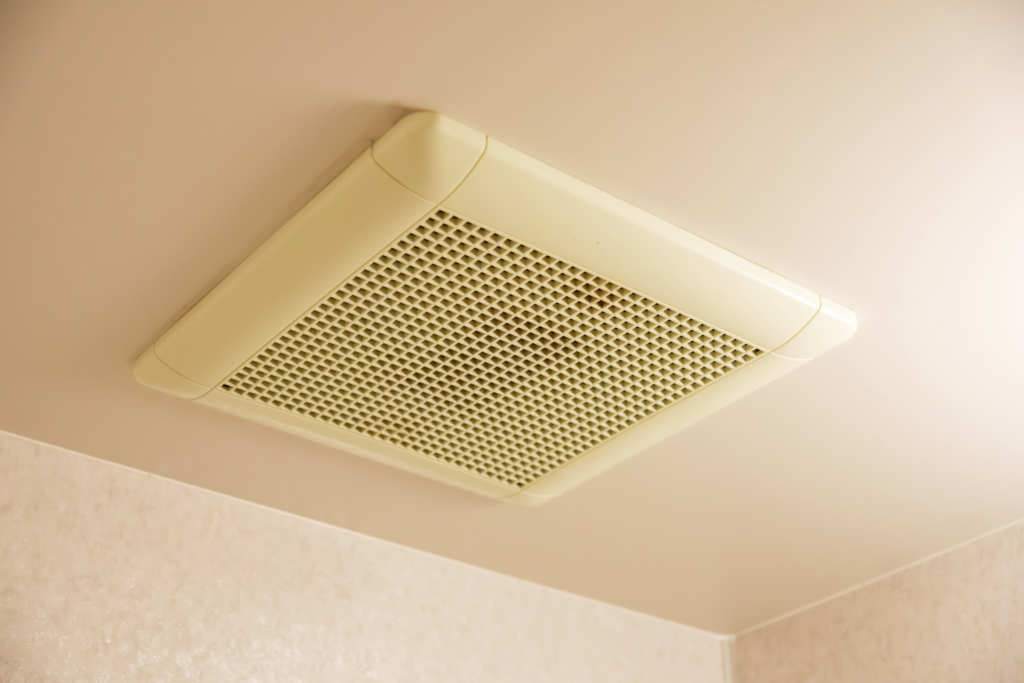
Code Considerations and Professional Assistance
Building codes, which are established to protect public health, safety, and general welfare, outline the minimum requirements and standards for various aspects of construction, including structural integrity, fire safety, and accessibility.
Navigating the ever-evolving landscape of building codes can be a daunting task, especially for those without a background in the industry. This is where professional assistance becomes indispensable.
By engaging the expertise of architects, engineers, and other industry specialists, one can ensure their project is not only compliant with current regulations but also optimized for long-term performance and sustainability.
Let’s look at some of these ideas in more detail.
Building Codes for Basement HVAC
When remodeling your basement, it’s important to be aware of building codes related to heating, ventilation, and air conditioning (HVAC) systems.
These codes help ensure that your basement is safe and comfortable for living. Some key points to consider include:
- Adhering to local building codes and permit requirements specific to HVAC equipment
- Ensuring air inlets are at least 10 feet (with exceptions) from known contaminant sources and protected with screens for rodents and insects
- Installing backdraft dampers on multiple exhausts sharing the same duct to prevent recirculation of exhaust air
Keep in mind that codes and requirements can vary by location, so it’s always best to consult with local authorities or an HVAC professional to confirm the specific codes for your area.
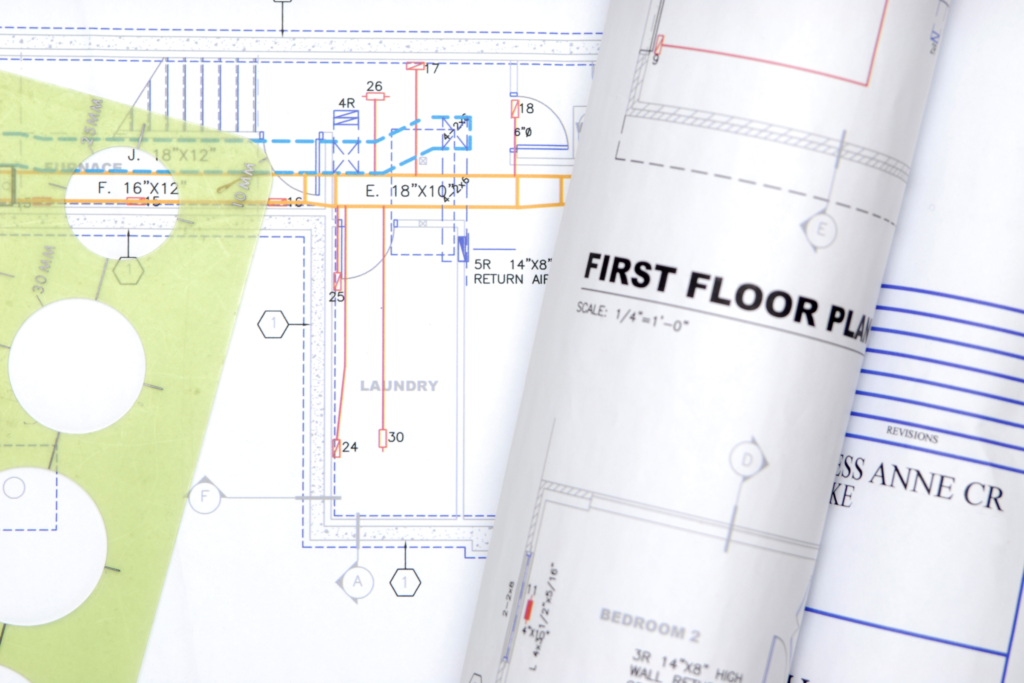
Hiring a General Contractor
Hiring a general contractor can help you navigate the complexities of basement remodeling, including HVAC system installation and compliance with building codes.
The right contractor will help you:
- Identify the best heating and cooling options for your basement given its unique constraints, such as size, layout, and existing infrastructure
- Ensure all work complies with local building codes and regulations, minimizing the risk of future issues and ensuring a safe living environment
- Coordinate with other professionals, such as plumbers, electricians, and HVAC specialists, to provide an integrated approach to your basement remodel
Be sure to research potential contractors thoroughly by checking references, requesting examples of previous work, and verifying proper licensing and insurance.
By considering both building codes for basement HVAC systems and the benefits of hiring a general contractor, you can ensure a successful remodel that meets safety standards and creates a comfortable living space in your home.
HVAC System Sizing and Installation
HVAC system sizing and installation are important considerations when it comes to heating, ventilation, and air conditioning systems in buildings. Proper sizing and installation of HVAC systems can ensure that the system operates efficiently, effectively, and safely.
HVAC system sizing involves determining the appropriate size of the system based on the size and layout of the building, as well as factors such as occupancy, insulation, and climate. An undersized system may struggle to adequately heat or cool the space, while an oversized system may waste energy and result in higher operating costs.
Installation of the HVAC system involves proper placement of the equipment, ductwork, and other components. This includes ensuring that the system is installed according to manufacturer specifications and local building codes. Proper installation can help to ensure that the system operates safely and efficiently while also minimizing the risk of breakdowns and repairs.
Let’s look at some of these ideas in more detail.
Determining the Right System Size
When considering air conditioning for your basement, it’s essential to determine the appropriate HVAC system size. Sizing a system correctly ensures that it can efficiently heat or cool your basement without excessive energy consumption. An HVAC system sized too small may not adequately control temperature and humidity, while an oversized system could result in short cycling, increased energy bills and reduced comfort.
Here are a few factors to consider when determining the right system size:
- The square footage of your basement
- The insulation and energy efficiency of your home
- The number of heat-producing appliances or electronics
Keep in mind that your basement’s square footage should be included when calculating the size of an HVAC system if you want to control its climate. Otherwise, you may not need to consider it.
Working with an HVAC Technician
To ensure the most accurate sizing for your basement’s HVAC system, it’s essential to consult with a professional HVAC technician. They will help you determine the system size needed to condition your basement space effectively.
HVAC technicians may recommend adding a second HVAC unit for the basement or extending your existing system based on factors like the size of your basement or other requirements. They’ll also provide valuable guidance on energy-efficient options and help you calculate the required capacity in tons for your HVAC system, taking into account your basement’s unique needs.
Insulation and Gas Appliance Considerations
Proper insulation is crucial for maintaining an efficient HVAC system in your basement. Insulating your basement walls and ceiling will help prevent heat loss in the winter and heat gain in the summer, improving the overall performance of your HVAC system. Remember to also insulate ducts and pipes to avoid energy losses.
Moreover, if you have gas appliances in the basement, ensure proper ventilation to prevent the buildup of dangerous gases, such as carbon monoxide. You might also consider choosing energy-efficient appliances to minimize heat production and reduce the load on your HVAC system.
In summary, when determining if your basement needs air conditioning and evaluating the right HVAC system size, consult with an HVAC technician, consider your basement’s specifics and square footage, and account for insulation and gas appliance considerations. A properly-sized HVAC system will enable you to maintain a comfortable and efficient basement environment.
Let Us Know How We’re Doing!
Did this expertly prepared resource answer your question?
Do you have another question about home maintenance, home improvement projects, home appliance repair, or something else?
Get more information, send in questions and keep the discussion going by contacting the I’ll Just Fix It Myself company customer service team at at 1-800-928-1490 or Email us at [email protected]
